Experts are cautious on Modi's US trip
Updated: 2014-09-25 12:24
By Chen Weihua in Washington(China Daily USA)
|
||||||||
Indian Prime Minister Narendra Modi, who has been denied a US visa for years, will visit New York and Washington starting this Friday, but experts said much of India's half a trillion dollar investment needed during the next five years or so will come mainly from China and other East Asian nations, not the US.
Semir Saran, a senior research fellow at the Observer Research Foundation, a think tank based in New Delhi, said such investment India needs for infrastructure and other projects will mainly come from countries such as Chinese mainland, Taiwan, Japan, South Korea, Australia and some Southeast Asia nations.
But regarding innovation and technology capability, such as developing a microchip industry and building a defense industry park, India will look to the West, Saran said in a talk on Modi's foreign policy held in the Carnegie Endowment for International Peace in Washington on Wednesday.
TanviMadan, a foreign policy fellow and director of the India Project at the Brookings Institution, agreed, saying that the US government won't be able to do what the Chinese and Japanese governments have been doing.
"That's not what the (US) government does," Madan said in a talk on Modi's visit to the US held on Tuesday at the Brookings. She noted that Modi's trip s part of his continued visits with China, Japan and other countries.
Chinese President Xi Jinping visited India last week, during which China promised to invest $20 billion in India's industrial and infrastructure projects in the next five years.
The 64-year-old Modi, who took power in May, has made economic development a top priority. Saran believes that whether he can achieve an economic growth of some 6 percent in the next year will be critical to his political capital in the coming years. India's economy grew 4.35 percent in 2013, the lowest since 2009.
Saran said the Modi's meeting with US business community will send a message that "India is ready for business" and it will be the most important part of Modi's trip. Modi is scheduled to meet CEOs of major US companies, such as Google, GE and Goldman Sachs Group Inc, in business meetings and breakfast, despite that the Indian leader will strictly observe a religious fast during the period.
Now US investment in India is only about half of the US investment in China, roughly $60 billion. Trade between China and the US, which exceeded $500 billion last year, is about nine times the amount between US and India.
Joshua Meltzer, a fellow of global economy and development at Brookings, said the low base also means more room and opportunities between the US and India.

India was ranked by the World Bank 134th of 189 countries in 2013 on the Ease of Doing Business, compared with 96th for China.
Saran dismissed the concern that Modi might be used by the US in its geopolitical rebalancing strategy towards Asia. "I don't think China can be contained. China is here to stay and China is a reality, China is a big power going forward in the future" he said.
"I don't think anyone is trying to contain China. People only want to ensure that we accommodate this new reality in a way that is mutually beneficial, peaceful and stable," he said.
Madan of Brookings said one of the reasons that Modi is welcomed in the US has to do with India's role in Asia.
"Even it (India) does nothing to actively support the US strategy towards China, India, if grown and strengthened, will dramatically serve as a balance to China, to shape China's rise for the better," Madan said.
She pointed out possible dangers for US-India relations such as a drift in attention as both countries are preoccupied by domestic and foreign policy priorities.
Meanwhile, differences over issues are also likely to dominate, such as on Pakistan, Iran and Russia and some multilateral forums. India has a long and deep tie, including military, with Russia. Modi has opposed West sanctions on Russia over Ukraine.
Madan pointed out that domestic politics, the hurdles for implementation and the noisy democracies in both India and the US are also likely to cause trouble for the relationship. She cautioned that if expectations are not met, it could result in the relationship being less important in each other's strategy.
Modi was denied a visa to the US in 2005 over the 2002 riots in his state Gujarat, in which more than 1,000 people, mostly Muslims, were killed. Modi, then chief minister of Gujarat, was accused by the US of being responsible for "severe violations of religious freedom."
chenweihua@chinadailyusa.com
(China Daily USA 09/25/2014 page1)
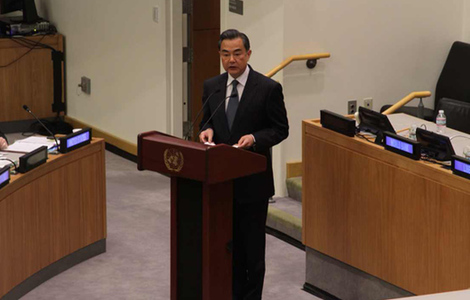
 UN high-level meeting on Ebola
UN high-level meeting on Ebola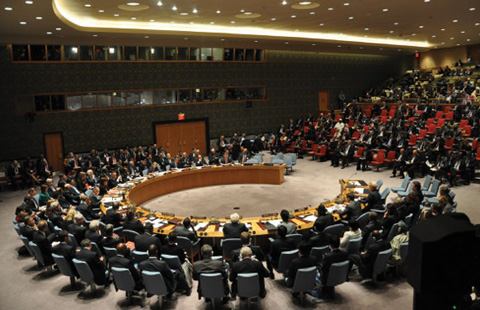
 FM calls for new steps in fight against terror
FM calls for new steps in fight against terror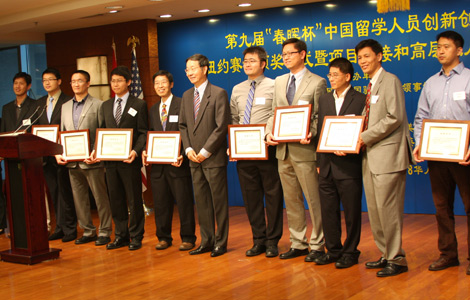
 Chunhui Cup takes on China's 'brain drain'
Chunhui Cup takes on China's 'brain drain'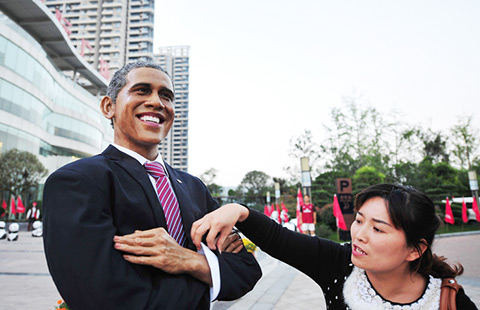
 Celebrity sculptures become property ambassadors
Celebrity sculptures become property ambassadors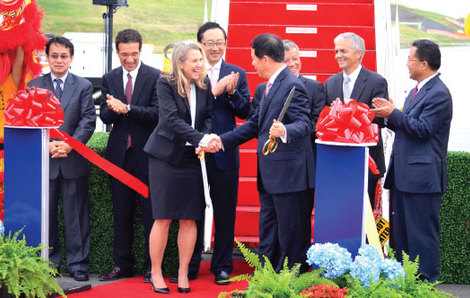
 China Eastern gets 1st B777
China Eastern gets 1st B777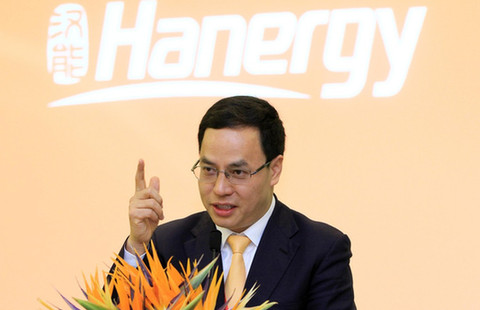
 Top 10 richest individuals in China
Top 10 richest individuals in China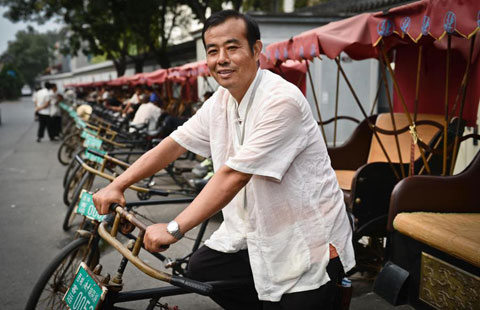
 Rickshaw driver's regular day in Beijing
Rickshaw driver's regular day in Beijing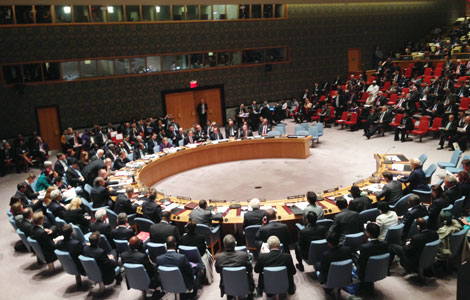
 UNSC passes anti-terror resolution
UNSC passes anti-terror resolution
Most Viewed
Editor's Picks

|

|

|

|

|

|
Today's Top News
Joint institute will take on water pollution
Experts are cautious on Modi's US trip
China, Spain to ink $4b deals
PLA vows to root out abuse of power
Bribery trial begins for ex-energy official
China to send 700 peacekeepers to South Sudan
China's FM calls for anti-terror 'new thinking'
Express delivery sector opens up
US Weekly

|

|







